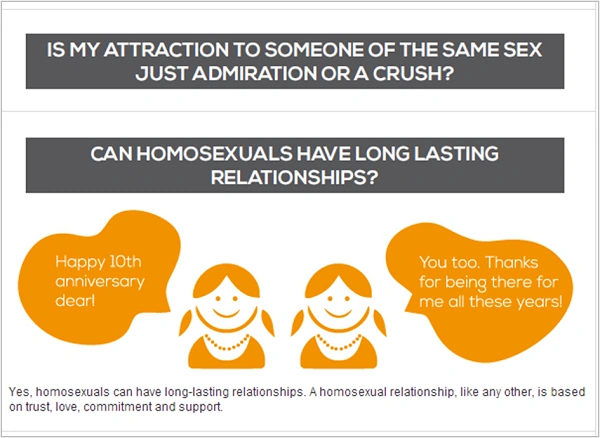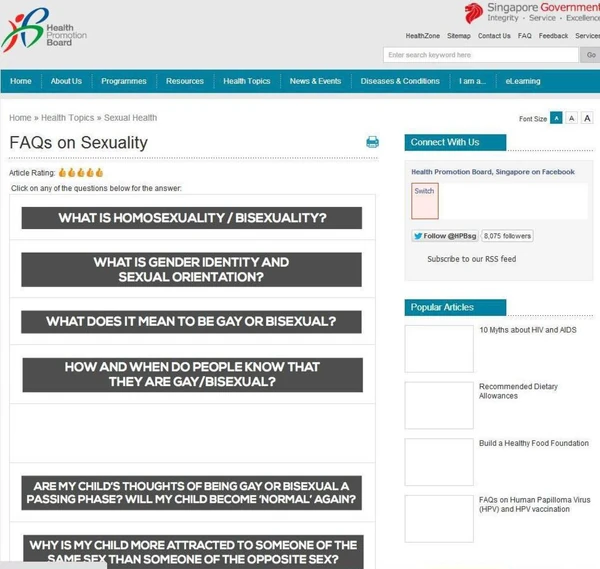Lim Biow Chuan is a politician from the People's Action Party (PAP) who served as Deputy Speaker of the 13th parliament of Singapore from January 2016 to 23 June 2020. He has also been the Member of Parliament (MP) for the Mountbatten SMC since 7 May 2011.
Lim is against the repeal of Section 377A which criminalises sex between men and does not consider homosexual relationships to be on par with heterosexual ones.
Parliamentary speech during debate over Section 377A[]
Lim delivered this speech on the first day of the parliamentary debate over Section 377A on 22 October 2007.
Transcript:
Finally, Sir, on the issue of section 377A, I wish to state my support for the Government's position of retaining section 377A of the Penal Code. I had originally not intended to speak on this topic. But in view of the Petition presented by Nominated MP Mr Siew Kum Hong, I feel that I should state that not all MPs agree with Mr Siew's arguments. I do not agree, Sir, that the role of the criminal law is only to punish those who have caused harm to others. If that is the case, as my fellow MPs had said yesterday, why do we have laws on attempted suicide? Why do we have laws prohibiting the sale of obscene materials? Why do we have laws against incest? Should we be bothered whether a father decides to sleep with his adult daughter in the privacy of their own home? Why do we bother to make it an offence for someone to have sex with animals? This is in section 377B. In fact, with this current amendment Bill, Sir, we have just introduced a new offence of necrophilia, which is this abhorrent act of engaging in sex with a corpse. Does this offence harm society? Does it make Singapore unsafe or less secure?
Sir, the basic position of Parliament should be that we make laws to reflect the public morality of our times. In this situation, Sir, I agree with the views of Ms Indranee Rajah. I support the Government's stand because I do not agree with the practice of homosexuality. This is not just my personal view but alsothe views of many of my residents when I sought their opinion. With the greatest respect to the Prime Minister, I must state that I do not think that there is conclusive evidence that homosexual behaviour is inborn. The jury is out on this issue, and different scientists would have different views on the matter.
Let me state unequivocally, Sir, that I am not anti-gay. The fact that I disagree with the practice of homosexuality does not mean that I despise homosexuals. In fact, like the hon. Member, Mr Baey Yam Keng, I have friends who are gay, and my approach to them is simply that "I do not agree with your lifestyle. But I would respect you for who you are. So if you are a decent chap, an honest and hardworking person, your sexual orientation or preference does not affect the way I see you. I would treat and respect you as another fellow citizen." And I do not believe that any Member in this House would turn away a person who comes to him during a meet-the-people session seeking financial help simply on the ground that this person is a homosexual. I believe that the majority of Singaporeans do not condemn a homosexual or a gay simply because of his lifestyle. Nor do they wish to criminalise a homosexual.
However, as my fellow MP, Mr Christopher de Souza, said, the messaging or signpost is important. As MPs, we have to send the message that Singapore is a conservative society whereby the family unit is still seen as the basic structure of society. I believe, Sir, we have not accused gays of being criminals, nor do I know of any petition to enforce section 377A.
Sir, in conclusion, I would like to state that I support the amendment Bill on the Penal Code.
Response to HPB's FAQs on sexuality[]
- See also: HPB's 'FAQs on Sexuality' saga
In late January 2014, the Health Promotion Board’s (HPB) posted a FAQ section on sexuality on its website which stated that homosexual and heterosexual relationships were not too different. The published information drew polarised reactions from the public, including petitions both for and against the board’s move after it went viral.

On Thursday, 6 February 2014, Lim hit out at the statement, which said homosexual and heterosexual relationships were not too different[1]. Writing on his Facebook page, he said: “I cannot agree that ‘A same-sex relationship is not too different from a heterosexual relationship’. The two relationships are different and they go against the Government’s policy of promoting heterosexual married couples to have healthy relationships and to build stable nuclear and extended family units. “I am utterly disappointed at the HPB’s stand in issuing such a statement,” said Lim, who also filed a question asking the Health Minister to clarify his ministry’s stand on the board’s online resource when Parliament next sat on 17 February 2014.
Lim revealed that he had learnt about the FAQ section a few days before when he received it in his email. He decided to make his Facebook posting because he felt the FAQ section “sends a wrong signal”. Noting that the bulk of the FAQ seemed to suggest that a homosexual relationship “is quite normal”, he added: “If we say a homosexual relationship is quite normal, then people get confused because that’s not the state’s pro-family position”.
Lim also felt that some of the answers in the FAQ seemed to present opinions as facts. He cited the answer provided to the question “Can homosexuals have long-lasting relationships?”, which was: “Yes, homosexuals can certainly have long-lasting relationships. A homosexual relationship, like any other relationship, is based on values like trust, love, commitment and support.” He said there were no conclusive studies supporting this statement and added that it could have captured the diverse views on the issue. “From what I have read, there are really diverse opinions on it, so when there are diverse opinions, you have to be honest about it — that some people feel it this way, some people feel it the other way — and let readers judge for themselves,” he said. Nevertheless, Lim said some answers, such as the definitions of gender identity and sexual orientation, were informative.
See also[]
References[]
Acknowledgements[]
This article was written by Roy Tan.

